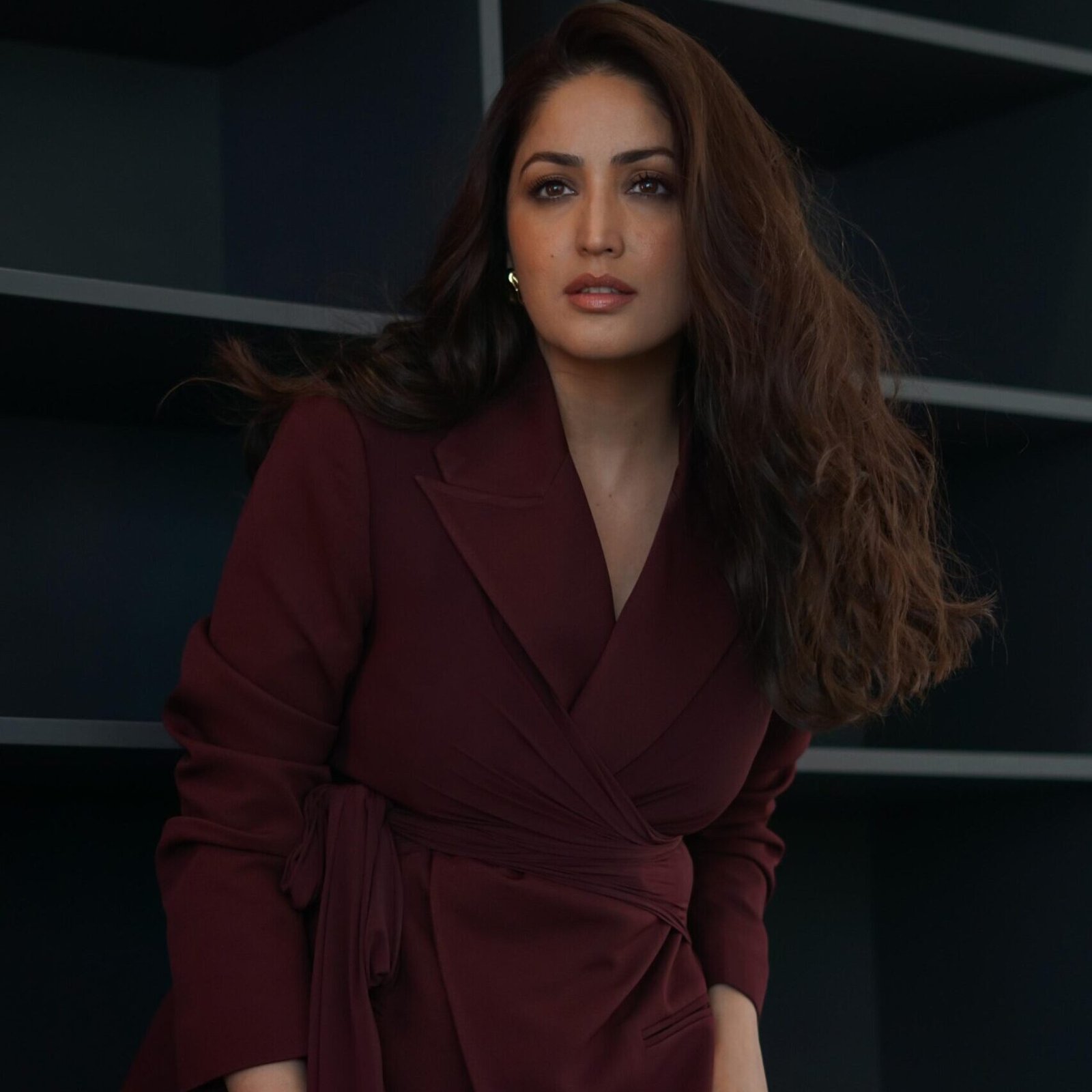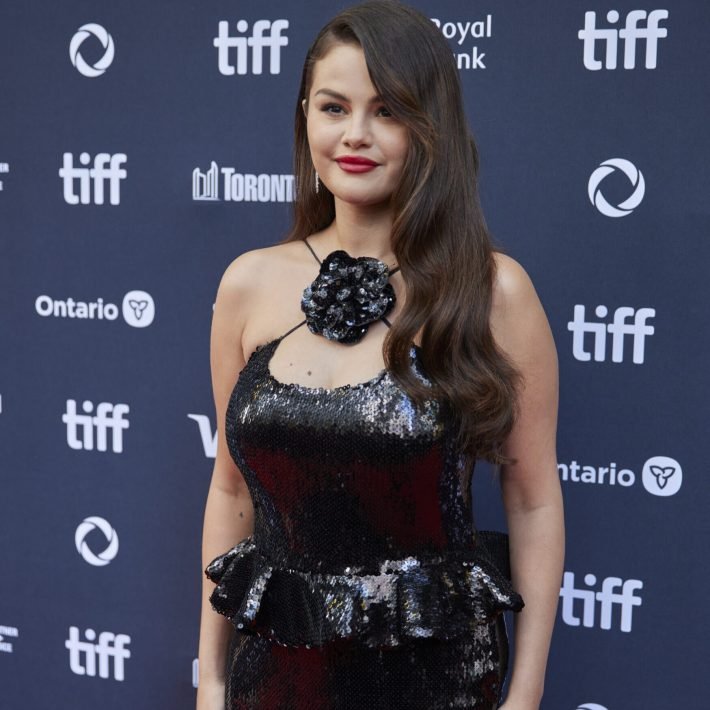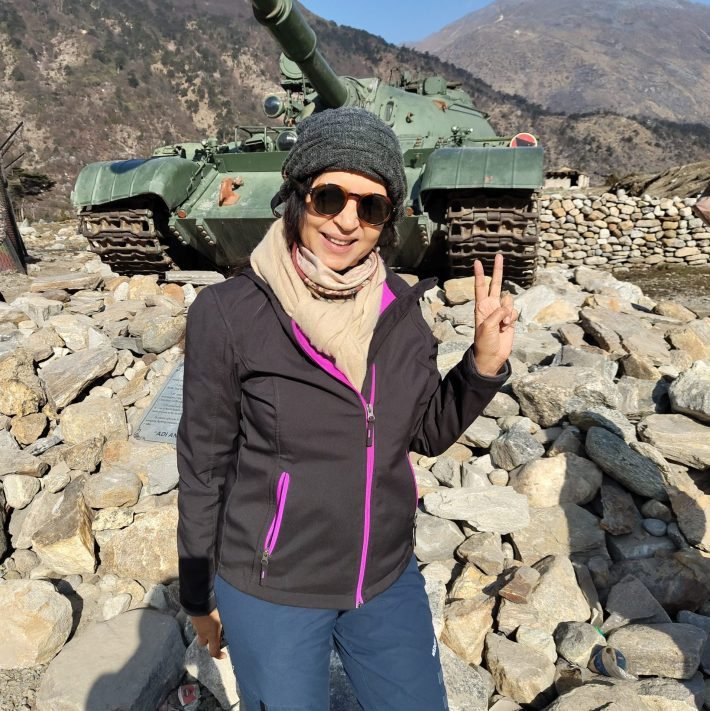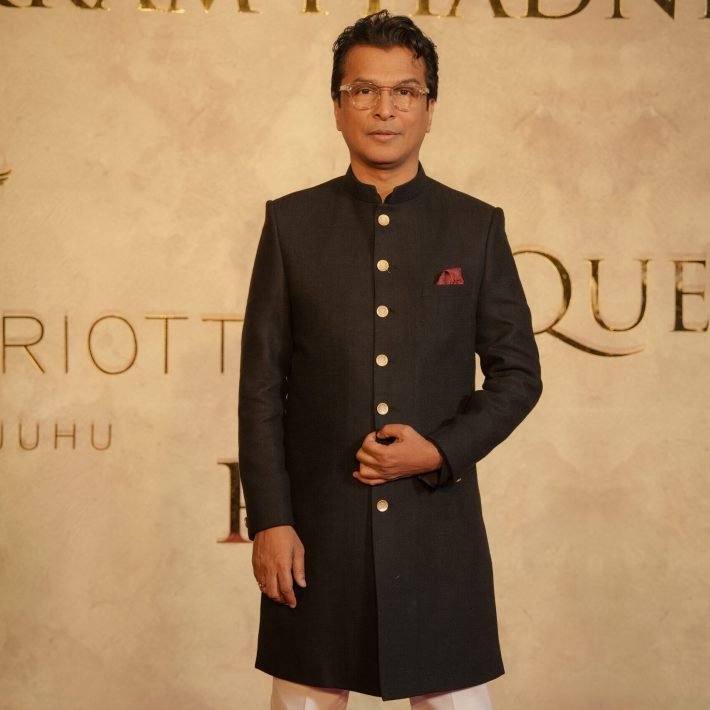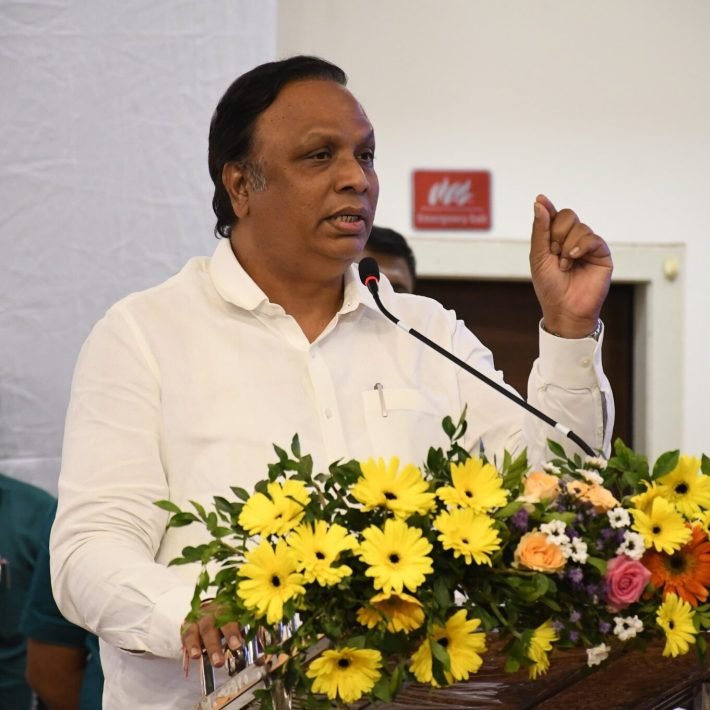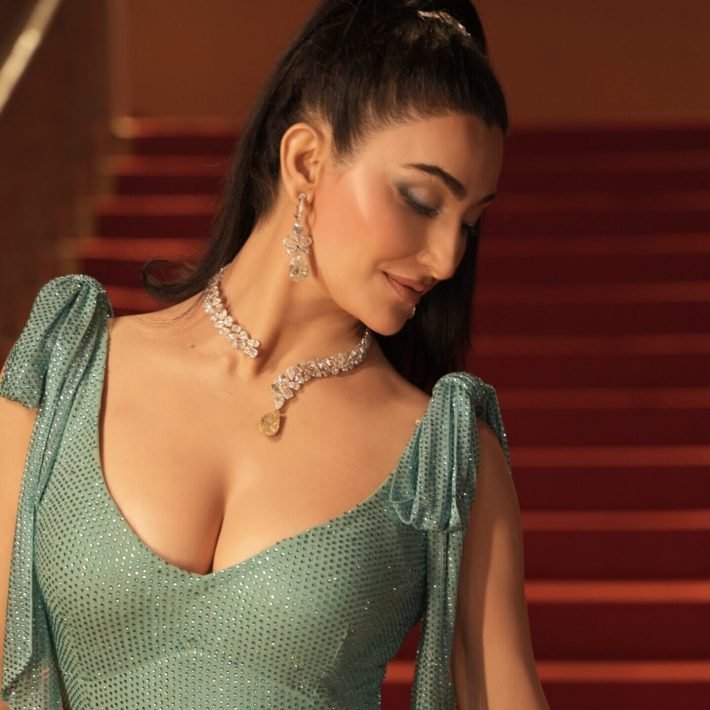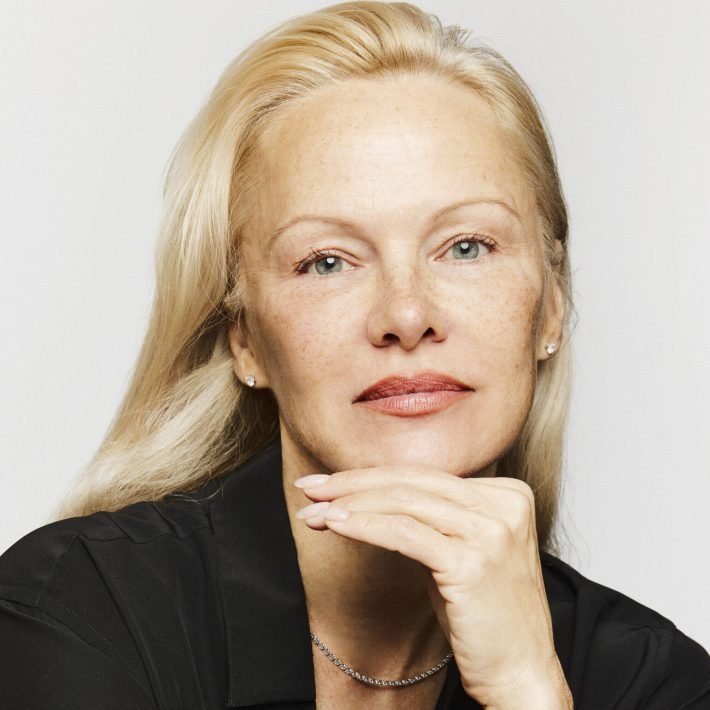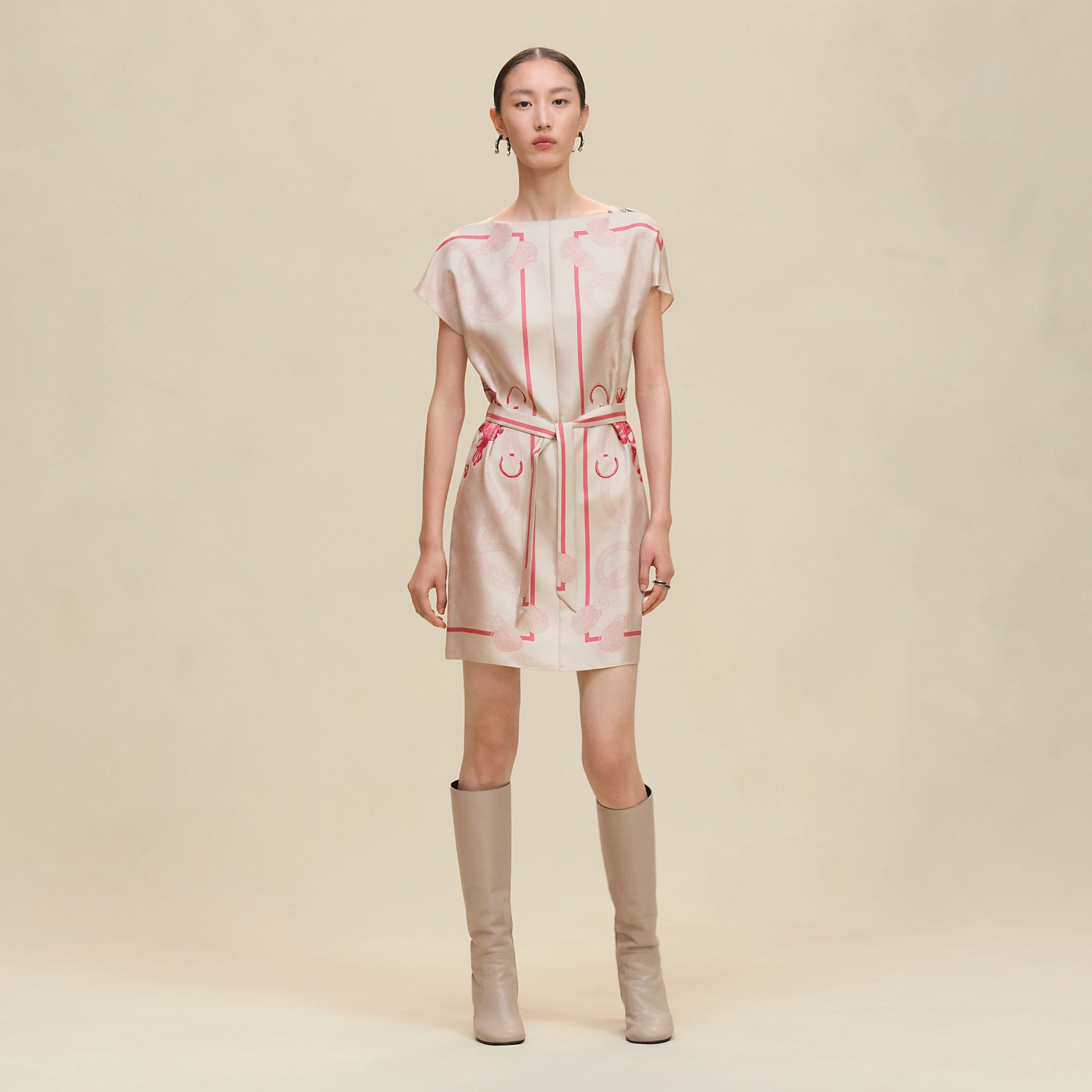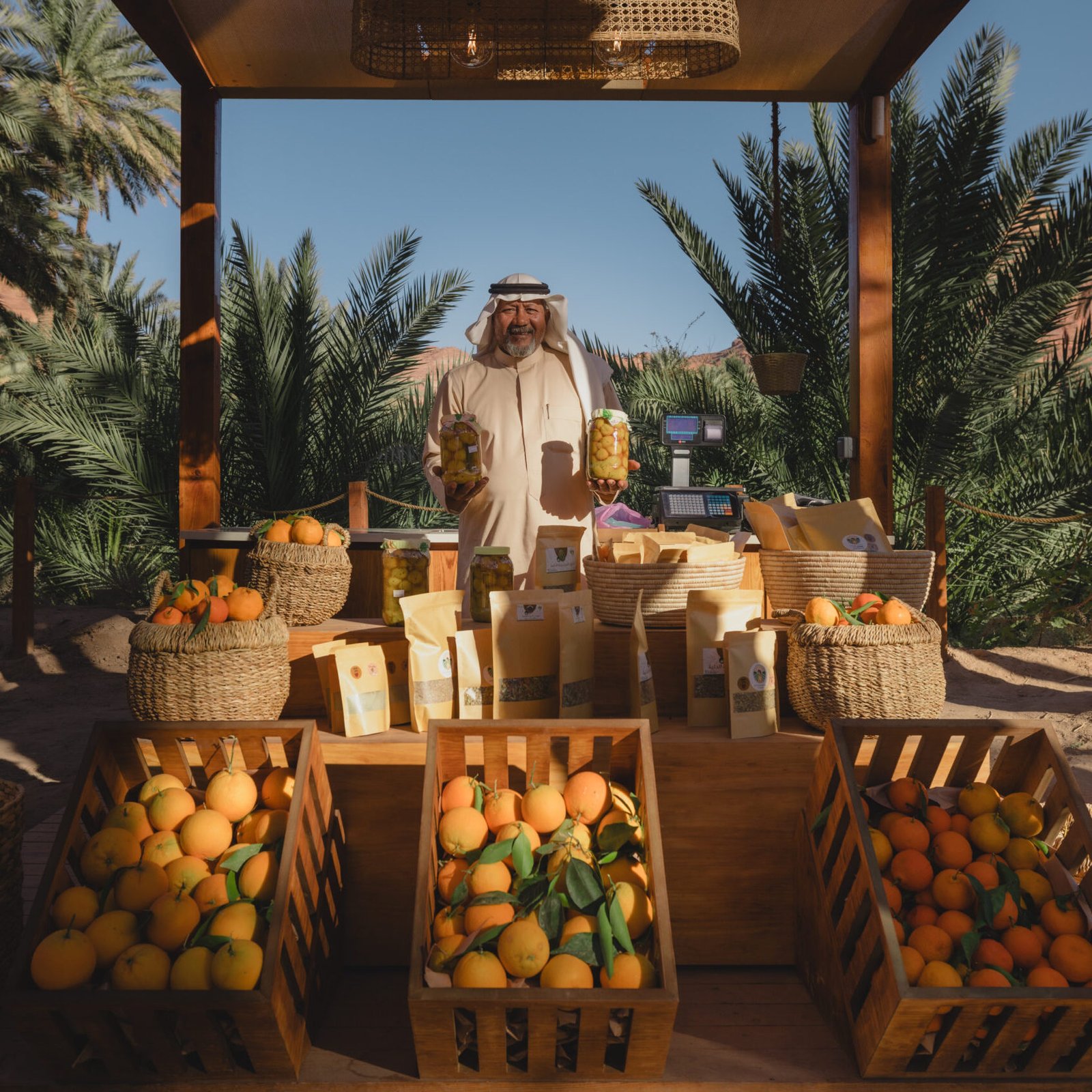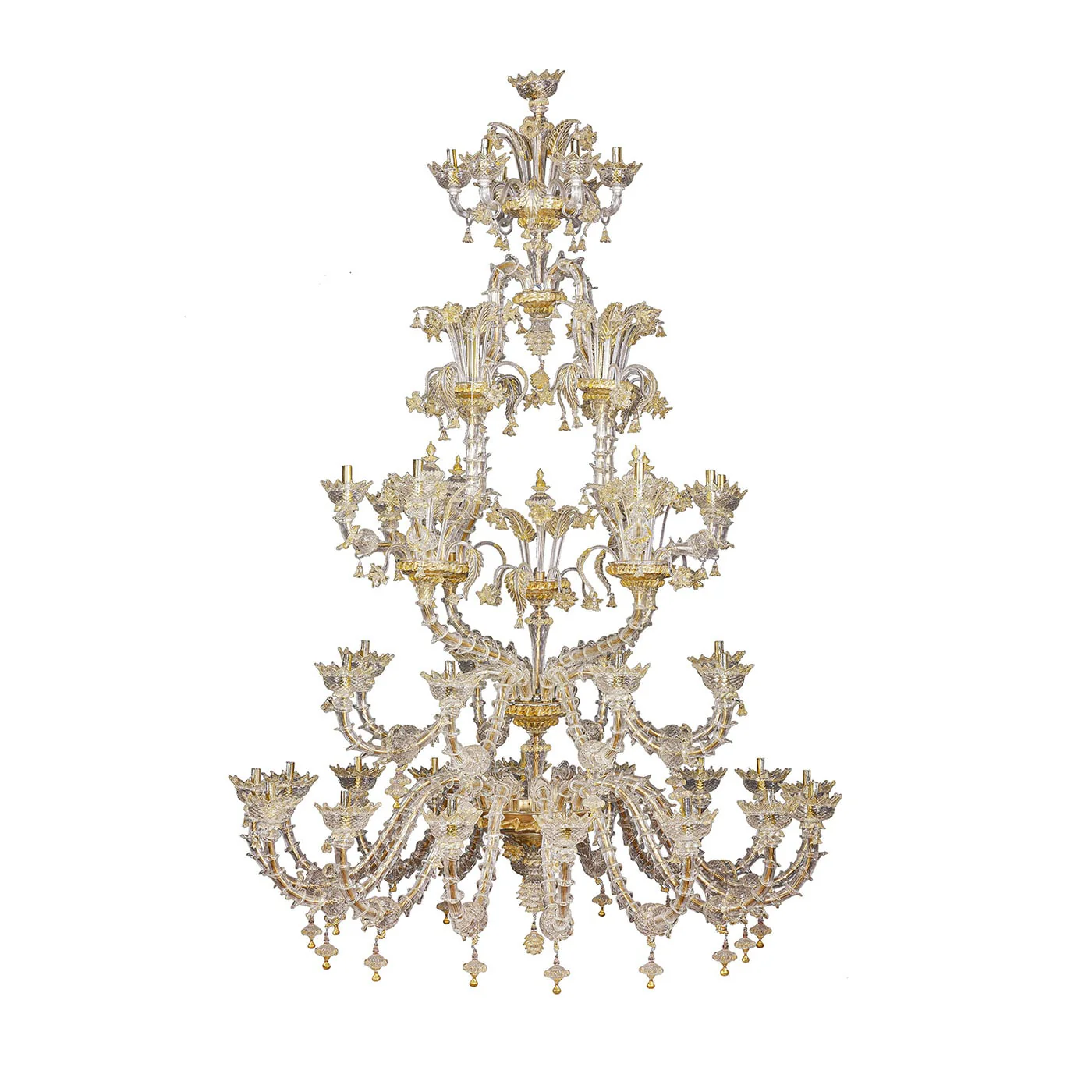Beautiful, without a doubt. Bold, in making tough choices and staying the course. Yami Gautam – actress, mother and role model.
By Bharathi S Pradhan, Senior Journalist & Author
She looks like beautiful, fragile porcelain.
It belies a force within.
There were no pompous speeches from her. Her actions, on screen and off it, did all the talking. Right from her first big risky splash in ‘Vicky Donor’ (2012), her success went beyond her beauty. YAMI GAUTAM’s courage to forge a path of her own has fashioned her into becoming an unstoppable female force.
Married (in 2021) to filmmaker Aditya Dhar at a quietly performed, no-fuss ceremony typical of the couple, Yami became mother to baby boy Vedavid in 2024. A year that also saw her triumph once again on the big screen as intelligence officer Zooni Haksar in ‘Article 370’.
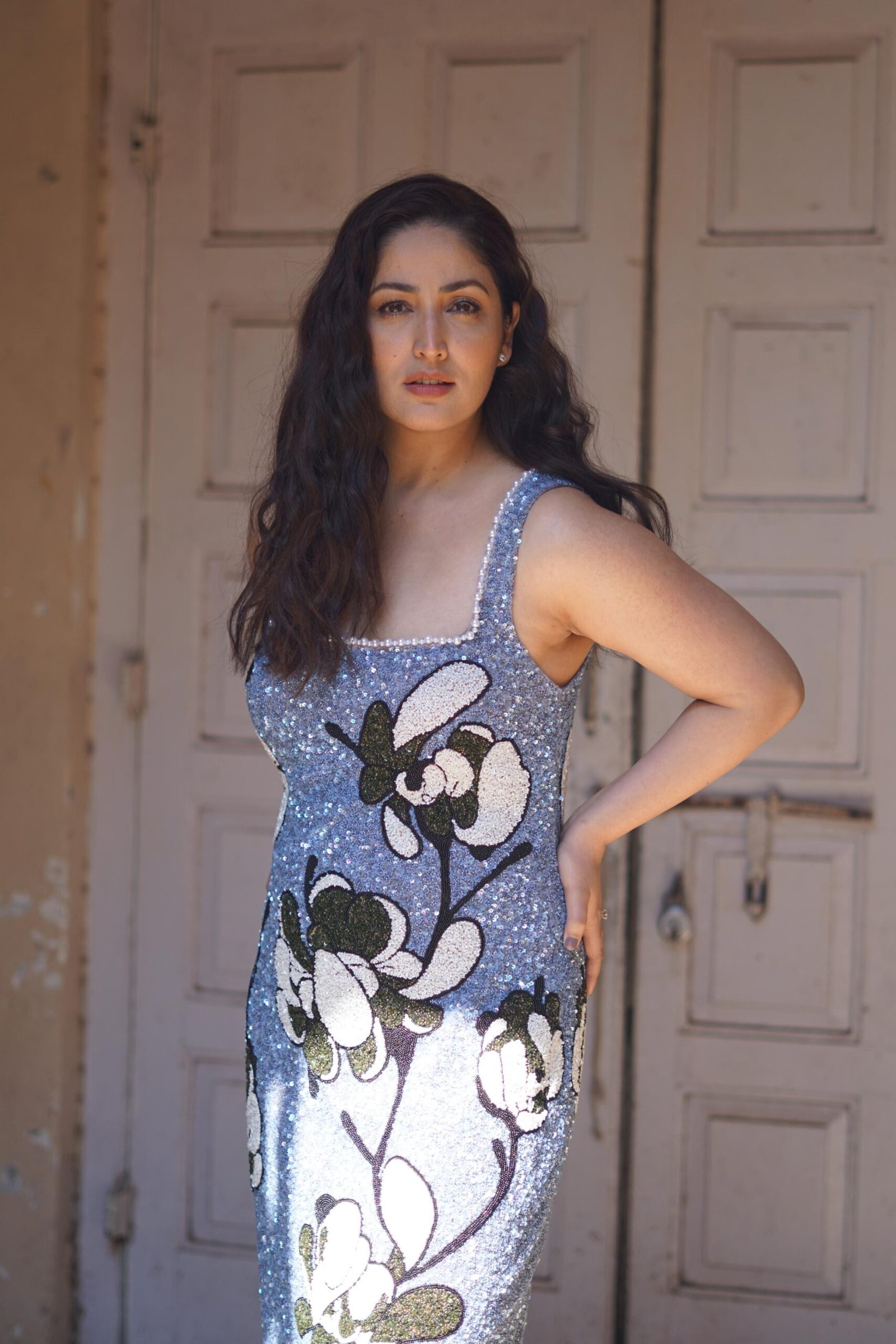
Model, TV actor, feature film star, wife and mother.
A success story carved out of her convictions. She kidnapped nursery school kids in ‘A Thursday’ (2022), used brains, strength and composure as an intelligence officer in ‘Uri: The Surgical Strike’ (2019), wore a crisp khaki uniform to school a corrupt, uneducated political heavyweight in ‘Dasvi’ (2022) and became the skilled fighting agent sent by Delhi to keep Kashmir under control when ‘Article 370’ (2024) was abrogated. Daringly eclectic choices that have put Yami in a standalone bracket of her own.
Excerpts from the interview…
You’ve done quite a few films on OTT. Do you feel OTT is safer than a theatrical release?
I started my journey on OTT during Covid when it felt almost as new as beginning your career all over again. The way OTT stayed on and gained this massive popularity, it was clear that it’s not going away anywhere. It caused a lot of disruption in the very nature of how cinema was to be experienced.
As an actor, the decision (to release a film on OTT) is not up to me, it’s up to the producer and the studio. My job is to keep looking for good work, great scripts, great opportunities for myself, to entertain and respect my audience. The (choice of) medium is something which is beyond me (but) either way, I get to reach my audience. Of course, the first love will always be theatre. There is no denying it. But every generation has had to adapt to something new. This is ours, so I’m enjoying the best of both. I’ve had good OTT releases with ‘A Thursday’, ‘Chor Nikal Ke Bhaga’, ‘Lost’, ‘Dasvi’ and now ‘Dhoom Dhaam’, which I feel is one of the best films of my career. I’ve also enjoyed the (theatrical) success of ‘OMG’ and of course, ‘Article 370’. I am trying to balance both mediums, I’ll keep trying my best.
(On being a safer option) While OTT takes away the pressure of a Friday, it also depends on how you yourself look at your release. How important is that to you because that is your work, another work of yours coming out, and you release on OTT, not in theatres. A medium where there is such a massive volume and influx of content, films and series. Why should anyone still watch your film and when they watch it, how long can you sustain (their interest)? That really matters to me. I look into the numbers very closely, very carefully. I’ll go all out to dig out the correct stats. How has it fared? It’s not about someone who has started watching your film. Did they stop watching after a certain time or did they finish the film? There are parameters to find out everything about a film. And I’m interested, very interested. Now, on OTT, you get to know which film topped that year, all the numbers. If it’s streaming internationally, then in how many countries? Fortunately, ‘A Thursday’ topped for that particular year and ‘Chor Nikal Ke Bhaga’ topped in the following year. So, I’m very happy. That’s the challenge now. To be brilliant or be a part of something that’s brilliant, stand out in this whole pool of content. I take it very seriously. I want to know what people are feeling, what they are writing. It matters a lot to me.
‘Uri’ and ‘Article 370’ did outstanding business in theatres. Now ‘Dhoom Dhaam’ on Netflix. What’s it like collaborating with husband Aditya Dhar?
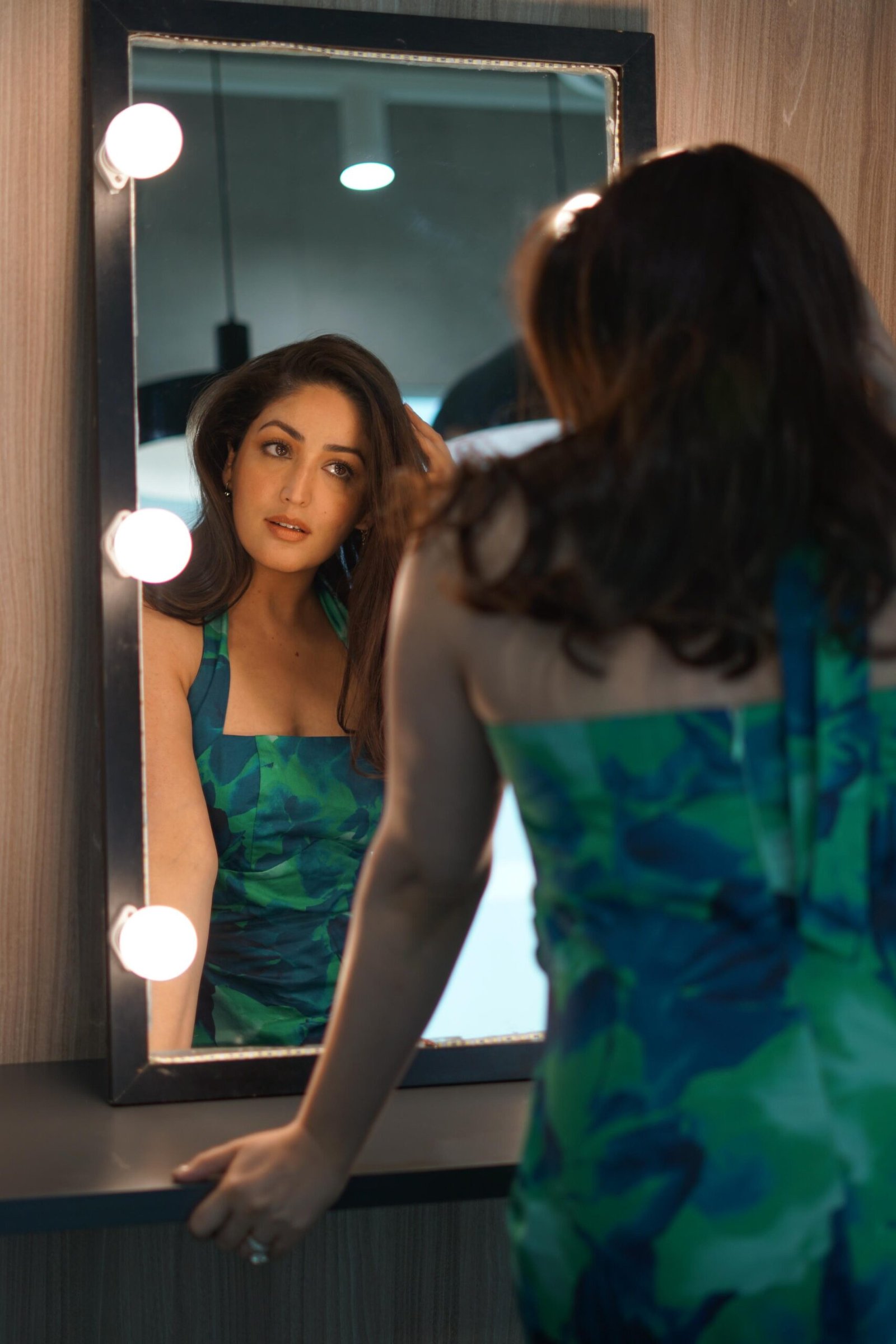
I have to speak about Aditya in a professional sense. It’s my good fortune to work with one of the best directors, one of the best writers, and one of the best co-producers of a film. He’s an absolute purist when it comes to his work. He has to give his best to the script. The very foundation of a film, a script, is extremely sacred for him, and I really respect him for that. In my experience, it is the script which is the hero of a film. I have no other benchmark. That’s my first (criterion) when I consider a film.
Aditya’s tireless dedication is not just to his actors, but as a director, as someone who’s leading the film, it’s for his crew, for his technicians. The ear he has for music, his passion to give his best no matter what. Everyone has had challenges in their lives, disappointments, highs, lows, ups and downs and a gazillion things. Yet it didn’t change his core or his belief system. That, I feel, is the strength that Aditya has in his character.
He gives his actors the freedom they want, and at the same time has an eye for detail. Nothing misses his eye, nothing, not even the smallest continuity, since ‘Uri’. He wants to have a good working ambience and give his audience the best experience that they expect from him. The amount of hard work he puts into it is something else. Also, his imagination, the way he imagines ideas or performances or casting. When people saw me only as a damsel in distress for a long time, he was the first person to say to the actor who worked in ‘Vicky Donor’, “I absolutely believe that you can play this agent in ‘Uri’.” He does that with most of his casting. How can you surprise the audience? How can you break the pattern? I could go on and on about Aditya. I have the utmost respect for him as a professional (apart from the personal, of course).
In ‘A Thursday’, ‘Dasvi’, ‘Article 370’, you didn’t have a conventional heroine’s role. Are you consciously making unconventional choices? Does the success of a film like ‘Article 370’ reaffirm your belief in your choices?
It became quite clear to me a while ago that if I have to make a mark in this industry, in this business, and have a standing of my own, the only way to do it is through my work and nothing else. For that to happen, I needed that one opportunity, that one role, that one character which would mark a departure from any image people may have of me. That was the year 2019, and I was on the lookout for such roles. I was very clear that whether it’s an ensemble (or not) and whatever the genre, I just have to be a part of a really good film and give it my best. That was when ‘Uri’ happened, when ‘Bala’ happened. And things just changed for me in a drastic way.
When it comes to comedy, the industry again works on certain perceptions and has these brackets. I was told that I have a certain intense approach and am very serious. I am generally that way in real life too. So a lot of people assumed that I was not capable of comedy. But I’ve heard of some of the best names in the business, one of them being Srideviji, who was very reserved. From whatever I’d heard of her and briefly had the fortune of meeting, she was very sweet, very reserved. But on screen, she was absolutely uninhibited. Who can forget her comedy timing? It’s a rarity.

So, I felt that there are certain roles that give you a certain opportunity and it’s about taking that opportunity at the right time. Things began to change for me. ‘A Thursday’, which was a theatrical release, stirred up a lot of emotions in the audience. It really connected with my audience and gave me a totally different set of audiences too. It is a very important film for me. The latest was ‘Article 370’. When your film does well, and earns well, that’s success. But for me, success is also when people accept you for who you are and respect you for that. And I felt that respect after ‘Article 370’. A certain kind of belief that the audience started connecting with me, in terms of choices of my script and selection.
There is a tendency that when a film does well or if an actor gets a lot of appreciation for a certain kind of role, they’re bombarded with similar roles or similar films. It happened to me after ‘A Thursday’, it happened after ‘Chor’, it happened after ‘Article 370’ and ‘OMG 2’, where it (the offers) would be of lawyers or thrillers and overlapping concepts. But it’s totally on me to keep breaking the pattern, keep doing something different, and keep pushing with every film, to the best of my ability and potential.
What kind of roles and stories are calling out to you at this stage of your career? Do you see yourself stepping behind the camera as a director or producer in the future?
I don’t have any notion or any expectation in my mind when I’m about to read a story or what kind of stories I now want to be a part of. I really have a blank canvas that way, I just like to be surprised. I want to go with the flow. But one thing for sure is that I go with my first instinct. If I like a film, if I want to be a part of a film, I love the character, I don’t overthink. I go with my gut with whatever my first feeling tells me. I think that’s always the purest thought and it works for me. I also want to make sure that whatever I’m signing, whatever I’m doing, it must at least have the potential to give the audience a good cinematic experience. They should feel good after watching the film. It could be any genre, comedy, fantasy, horror, fictional, or intense drama. The audience should feel it was worth it.
I should also have the satisfaction that I’m trying to collaborate with like-minded people or trying to pick up subjects that are also somewhere pushing the boundaries of our very own Indian cinema. I don’t see anything that should hold us back as Indians. It’s not about getting validation from anywhere. But we are in 2025, we’ve seen some of the best classics coming out of an era where technology was not booming. I’m sure there must have been so many challenges back in the day. But you see some cult Hindi or any other Indian language films. What classics. So, I don’t think anything should hold us back from giving our best. I don’t want to work out of any fear, or fear of whether it’s going to work or not. Of course, that is always there at the back of your mind but that’s beyond our control. The whole idea is to literally do our best and enjoy filmmaking instead of just making a project. There’s a stark difference between making a film and making a project. I would like to be a part of making a film.
Direction, I’m not sure. I don’t think so. I can be a good assistant director, I think I’ll be good at it. Producer, again, I don’t know. But you never know, there could be an idea or something that sticks on sometimes, and you feel, do I have it in me to back it? Can I? If all the boxes say ‘yes’, then maybe one day perhaps, who knows.
You seem to have an affinity for a uniform – ‘Uri’, ‘Dasvi’, ‘Article 370’. Do these figures of authority evoke something special in you?
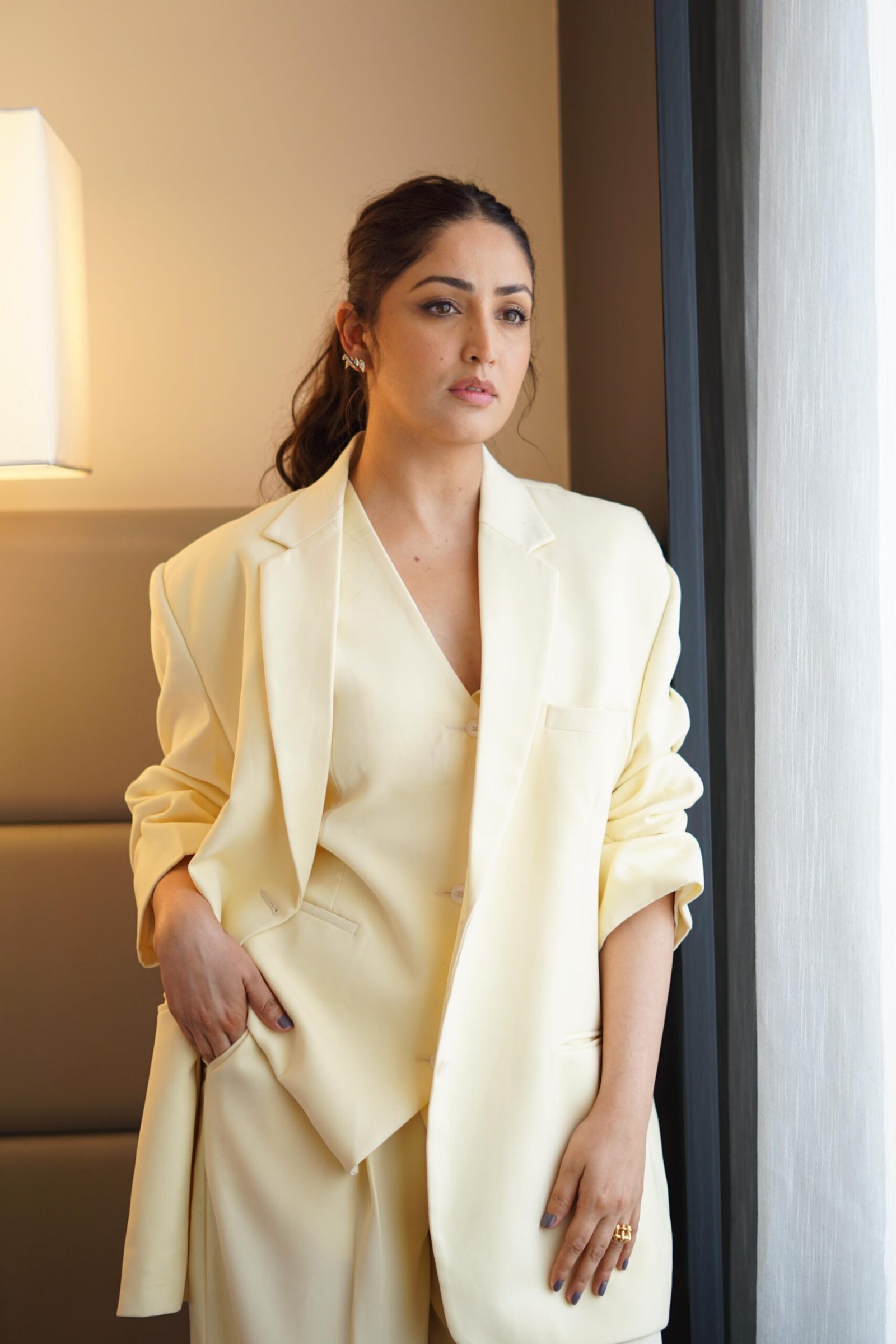
There is no other way to put it but to say, it’s been my good fortune and an honour for me that I got an opportunity to portray literally once-in-a-lifetime kind of characters and roles, be it Pallavi in ‘Uri’, Jyoti in ‘Dasvi’ and of course, Zooni Haksar from ‘Article 370’. These are heroes in our real life and some of them literally work in the shadows. But that is where real power lies. There is definitely a sense of pride, there’s a certain sense of being an Indian, being one with the nation and silently but firmly asserting authority. It’s literally internalised and a part of you, part of who you are and it’s a most satisfying feeling. The moment you wear a uniform, you see yourself dressed as an officer, you will not have droopy shoulders. Your posture will automatically be correct. As I said, there’s a certain sense of nationalism that you associate with these roles. You feel proud. Films like ‘Uri’ and ‘Article 370’ also gave me a sneak look into what actually goes on behind closed doors. How some of the most important decisions are taken. We may not know their real names, that’s the nature of their jobs, but what they do definitely affects all of us. It is for all of us. And to be able to portray just a fraction of it, is a feeling I don’t forget. I don’t let myself forget it ever because with that thought, I perform. It is not only about action, of course I got to do all of that, perform all of that in ‘Article 370’ especially, but it’s the feeling. It’s always that feeling which is deep within. Why are you doing this in the first place? I always keep that emotion alive and just be thankful to Aditya and (producers) Lokesh and Ronnie or Dinoo (Vijan) for giving me such roles.
You started your career in television before transitioning to films across multiple regional industries. Besides Hindi, you’ve worked in Kannada, Tamil, Telugu, Malayalam, and Punjabi cinema. How did the experience of establishing yourself as a pan-India actress, shape your craft? Has working in different languages broadened your understanding of cinema? And of life?
Well, I had not thought of this term, pan-India actress at all, and I didn’t think about it until you mentioned it. Now that I look back at all the work that I’ve done in different languages, back in the day it was very hard, I think, especially Malayalam. It has to be one of the hardest languages in the world but I remember delivering monologues because I would stay up all night and keep learning my lines till I got it right. When I look back at my work in the initial days of my career, I feel happy. There’s so much culture, like after every 10 kilometres within one state itself, the diction or dialect changes, the language changes, the food changes, and it’s so beautiful.
As far as films go, yes, they gave me a good experience of what every industry looks like. Again, creativity has no barrier. If you’re able to strike a chord with the audience, with their heart, they’ll understand. There are certain kinds of stories they’re bringing or the kind of scale they’re bringing (into pan-India cinema). If I get an opportunity to work on any of these languages again with a good role, with a good film, a good story, of course, I’d love to pursue it once again.
Would you like to share a little about the culture of Himachal Pradesh, how it has helped shape the person you are? After marriage to Aditya Dhar, are you also getting to know a bit more about Kashmir and its culture?
No matter what we become in life, no matter how far we travel in life and in the world, what work we do, what heights we reach, whatever we do, the childhood and the background that one belongs to, play a massive part and I don’t think that ever leaves you. Again, I’ve been very lucky to have the perspective that I have today. A major contribution also goes to the kind of upbringing I’ve had. I come from a middle-class family, born in Himachal, and raised in Chandigarh. I’m thankful to my parents for the kind of education they gave me and my siblings. Of Himachal, there are so many memories… I may forget where I kept my phone a few seconds ago but I have an elephant’s memory about my childhood. I remember almost every part of my childhood, how I felt being in Himachal. I used to feel so happy and uninhibited, happy that I belong here. I just knew that I belonged here. The food would taste very different, the air, the greenery, just about everything. Even today, the same thing happens to me.
The moment I reach Himachal, something changes. If, perhaps, a thought was bothering me, suddenly, there’ll be a shift in my mood, and I’ll just be very happy. Happy just to soak it in. I think of the simplicity of the way of life there, and how rooted people are. I’ve seen my family and relatives there, the way we eat, the way we pray, finding the best of joys in just taking a walk up the hill.
Now, of course, we have luxuries and perks and you don’t think about going from place A to B. Everyone has a car or whatever mode of commuting. But back in the day, I remember, if my mom decided, ‘Okay, we’ll hire an auto’, that would be like luxury in Himachal because getting to sit in an auto came only after so much walking. When you walk a lot, that is when you see the life there, that is when you see a market, the different kinds of people coming together, sitting in shops, how they talk, what they are making. How somebody has a peculiar style of talking. Even today, when I cross those markets, I just feel really happy to have experienced all of that. I still take a walk. I remember, we went to Jwala Devi and took a walk in those gallis (lanes). It was almost winter, so people would go back home early. But I just wanted to (linger), because it’s literally like a film where everything comes alive in your imagination. You start remembering, this is what I used to do, this is where I used to run, this is where I used to hide, this is where we used to play, this is what we used to eat. I’m fortunate to have seen that side of our country.
Having worked in Mumbai, I respect this city too, this life that has given me everything. But to stay grounded, to stay close to your roots, that is where Himachal being there (in my life) has definitely helped me.
Of course, Kashmiri is also a beautiful culture. I feel I take a lot of pride in being, as Aditya says, koshur koor (a Kashmiri girl). The food, the people, the language, everything is so beautiful. I’m just so lucky that I’ve got to see the best of both cultures. That’s when you feel the need to preserve our culture more and more. You know, I’ve taken the maximum time to answer this question, but small things as we have and do, we eat on leaves, it’s called pattal in Himachal. Traditionally, when there’s a wedding or a function or any occasion, when there’s a community feast, we eat on pattal. I see that culture kind of slowly fading away because the next generation probably doesn’t want to pursue it. In Kashmir too, known for artefacts, pashminas and hand-woven work, where do you find an authentic one today? It’s all largely machine-made. Everyone has their own idea of success. Every generation, as we discussed earlier, goes through a shift. I do think that charm and that joy, a certain generation would probably not know about in times to come. It was a part of our culture. I don’t know how but if somehow we could preserve it, somehow relish it for a little longer, it would be very beautiful.
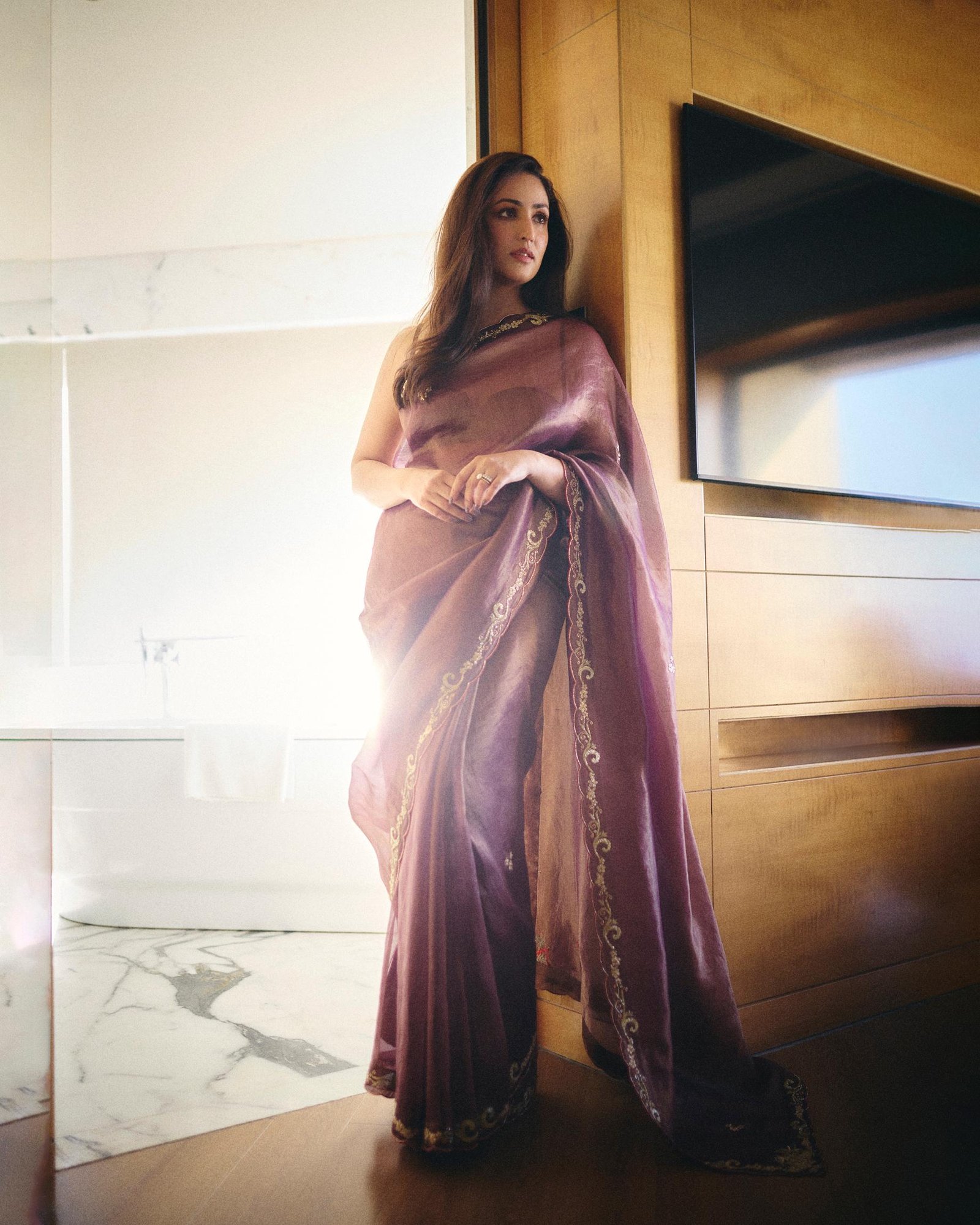
How has becoming a mother to Vedavid transformed your outlook on life and work?
When you become a mother, I feel the whole lens with which you see the world, completely changes. It is all about your child. Be it work or anything else, your day-to-day schedule, everything that you used to have as a certain kind of lifestyle, a certain kind of schedule, a certain kind of routine, it just shifts. Everything revolves around your baby who is at the core of not just your heart but everything in your life. I feel really blessed that I could embrace motherhood because that’s when you experience the meaning of purest love. That pure love and the strength that a mother holds is unparalleled, incomparable to any other force in the world.
